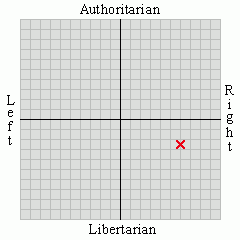
In the midst of a global recession that many Asian countries were able to avoid, India has consistently proven itself to be an extremely dynamic economy. This year the growth rate is expected to fall short of 7%; only two percentage points under the record achieved in the years preceding the current financial crisis, and double the highest rate experienced in the 1980s.
The country is at the forefront of innovation in ICT, pharmaceuticals and in other sectors involving high technological components. It also has an excellent university system, with several schools capable of rivalling their more prestigious counterparts in America and Europe. In demographic terms, the current population of 1.2 billion is expected to overtake that of China in forthcoming years and will continue to provide the economy with a limitless supply of young people. The economy can also depend on the input of India's vast overseas diaspora, especially in the US, where 64% of the three million Indian-Americans hold degrees, some of which enjoy positions of considerable influence in that country's political and economic establishment. The most reliable sources estimate that India's diaspora consists of 20-30 million people, of which roughly a third is in possession of Indian passports. In recent years Delhi has learnt to consider these Indians as an essential resource, partly in recognition of the high value of remittances, which in 2009 were estimated at $40 billion, the majority of which came from the Persian Gulf.
India however finds itself in 134th place in the UN's Human Development Index. Illiterates constitute over one third of the population and 95% of the work force is employed in the underground economy. According to the World Bank 42% of Indians were surviving on less than $1 a day in 2004. Today, more than 80% of the country lives in extreme poverty and earns less than $2 a day.
Another considerable limitation to India's development is its infrastructure. Even though the government is investing heavily in the modernisation of its roads, ports, railways and airports in order to close the developmental gap with China, Indian infrastructure nevertheless remains far from reaching the standards seen in the West or the Far East. The shortage of electrical supplies to people's homes presents a serious limitation on the spread and use of mobile telephones and electrical goods, including the technologies that Indian industries currently excel at producing. Furthermore, hundreds of millions of Indians lack private toilets; a problem which itself accentuates other sanitary, environmental, social and economic issues caused by the scarcity of water.
Such social and economic hardships reflect the poor distribution of wealth and the even clearer ethno linguistic and cultural complexities throughout the country. Even so, the intensity of hostilities between Hindu nationalists and the Muslim minorities seem to have subsided contemporaneously to the decline of the Bharatiya Janata Party, the strongest proponent of the Hindutva ideology that defines India as a Hindu state.
Despite these difficulties, this heterogeneous state has not only avoided implosion, unlike Pakistan in 1971, but has also preserved its sui generis democracy. Whilst living standards are far from western, they are noticeably more evolved than at the country's inception in 1947. However, rampant corruption in public administration and the country's family-dominated political class, currently led by the Gandhi family, whose head, Sonia, enjoys greater authority as leader of the Congress Party than the Prime Minister, Manmohan Singh, prevents the Indian state from reaching its full potential.
India's relationship with America has also dramatically changed since the beginning of Obama's presidency. Previously the Bush government had identified India as a privileged strategic ally, who, along with Japan and Australia, would form a belt to contain the growing Chinese power. Such a stance culminated in the signing of nuclear agreements in 2008, thereby constituting an outward signal of mutual trust between the two powers. These events however are in marked contrast to the current situation, where the Indian elites have many reasons to distrust Obama. The United States' alliance with Pakistan in the war against Islamic terrorism appears to Indians as a contradiction in terms. Further discontent is caused by Obama's seeming fascination for China, the country regarded by Indians as the historic sponsor of Pakistan. Moreover, a perceived downgrade of the bilateral relationship by the US, whereby India is no longer regarded a strategic partner but one of several strategic regional actors capable of advancing American interests.
As such, is it feasible to assume that the G2 paradigm, composed solely of China and America, will need re-evaluating to take India's presence on the international scene into consideration? The Indian-American political analyst, Parag Khanna, suggests that India is a regional rather than a great, world power, as the country "is still not greater than the sum of its parts;" and neither will it be for the foreseeable future.






